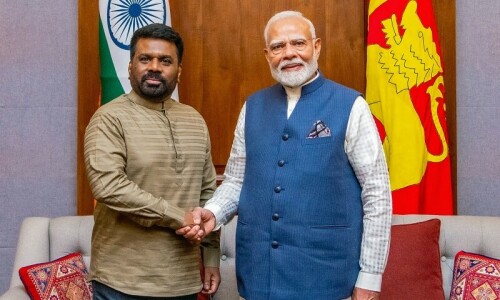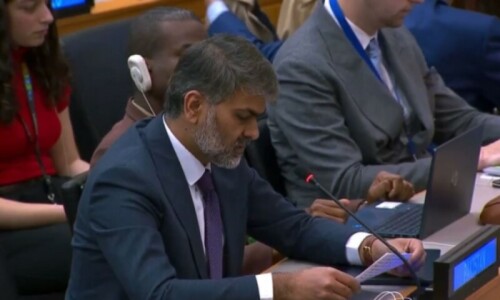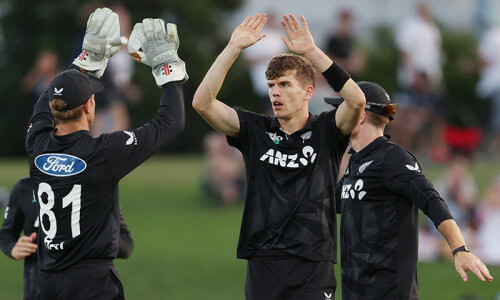Australia and India said on Tuesday they are close to finalising an interim economic and trade cooperation deal and hope to sign a full agreement by the end of the year.
Australian Prime Minister Scott Morrison and Indian Prime Minister Narendra Modi held a virtual summit on Monday evening to discuss economic, defence, and technological cooperation, as well as the war in Ukraine.
A joint statement released on Tuesday said considerable progress had been made in negotiations for the Comprehensive Economic Cooperation Agreement (CECA), which was “close to finalisation”.
An interim economic deal would be concluded “at the earliest”, and the two nations would “work towards an ambitious, full CECA by the end of the year to enhance trade and investment ties”, it said.
Morrison's government, which faces an election in May, hopes to strike a trade deal with India to help diversify its exports away from a reliance on China, with which it has increasingly frosty diplomatic relations.
Australia and India launched talks on a trade deal in 2011, and in 2020 the two prime ministers decided to speed up the negotiations.
Australian Trade Minister Dan Tehan said he expected the trade deal to be agreed upon “hopefully, in the next week”.
India was Australia's seventh-largest trading partner in 2020, with two-way trade valued at A$24.3 billion ($18bn).
Tehan said the trade deal would give greater mobility for workers and students, as well as boost cooperation on critical minerals.
India has said it is seeking greater market access for its textiles, footwear, leather, and pharmaceuticals.
Ukraine conflict
Morrison and Modi also discussed the war in Ukraine and expressed “serious concern about the ongoing conflict and humanitarian crisis”, the joint statement said.
US President Joe Biden said earlier that only India among the Quad group of countries was “somewhat shaky” in acting against Russia over its invasion of Ukraine, as it tries to balance its ties with Russia and the West.
The Quad group includes the United States, Australia, Japan and India and is focused on a free and open Indo-Pacific.
India's foreign ministry said on Monday that Australia understood India's position on Ukraine, which “reflected our own situation, our own considerations”.
The joint statement released Tuesday by Morrison's office said the premier and Modi had “reiterated the need for an immediate cessation of hostilities” in Ukraine.
“They agreed to remain closely engaged on the issue and its broader implications for the Indo-Pacific,” it said.














































